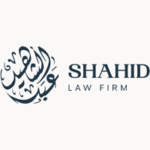-
What are the key rules/laws relevant to M&A and who are the key regulatory authorities?
There are a number of laws and regulations which would impact on M&A activity. There are also a number of factors that would impact on which laws could apply including the sector in which the target operates, the corporate form of the target (including whether it is listed), the value of the transaction and how the transaction will be structured.
The laws/regulations that govern M&A activity in Kuwait include the following:
- The Civil Code, Law 67 of 1980 (as amended) which sets out, amongst other things, the general contractual principals which may apply;
- The Commercial Code, Law 68 of 1980 (as amended) which sets out, amongst other things, rules relating to particular transactions and payment methods;
- The Companies Law no. 1of 2016 (as amended) which regulates the operation, management and transfer of companies generally in Kuwait;
- The Promotion of Direct Investment Law no 116 of 2013 (the DIL) which regulates certain investments from abroad into Kuwait;
- The Competition Law 72 of 2020 as well as its executive bylaws which regulate anti-competitive behavior in relation to, amongst other things, the acquisition of an interest in a Kuwaiti company;
- The Capital Markets Law no. 7 of 2010 (as amended) (the CML) as well as its executive bylaws (primarily the Capital Markets Handbook issued under Resolution 72 of 2015) (the CML Bylaws) which regulates, amongst other things, the capital markets as well as the restructuring and/or transfer of shares in certain types of companies;
- The Boursa Kuwait Rule Book (as amended) (the Boursa Rule Book) which impacts on the sale and acquisition of listed companies; and
- The Tax Law no. 3 of 1955 (as amended) as well as well as its executive bylaws which requires certain actions be taken in relation to and which would also impact on the structures used in such M&A activity (bearing in mind that depending on the profits of the party involved, a new Law of Taxation on Multinational Entities number 157 of 2024 – which was issued on 30 December 2024 pursuant to the global “base erosion and profit shifting” (BEPS) initiatives and the OECD Pillar II Model Rules – may be the applicable law regulating tax obligations (i.e. instead of Law 3 of 1955).
The regulatory authorities which may be involved would depend on, amongst other things, the corporate form and type of business the parties involved undertake, the extent of the interest being acquired and the value of the transaction involved. Bearing this in mind, the regulatory authorities that we would typically expect to be involved in a transaction include the following:
- The Ministry of Commerce and Industry (the MOCI), which would typically be involved with licensing and incorporation of an entity as well as the transfer of shares in certain forms of companies;
- The Kuwait Direct Investment Promotion Authority (KDIPA) which administers and regulates investments made under the DIL;
- The Competition Protection Authority (the CPA) which would have to approve certain transactions under the Competition Law;
- The Capital Markets Authority; and
- Boursa Kuwait which administers and regulates the stock exchange.
Depending on the business activities which the parties involved may be undertaking, other laws and regulatory bodies may also become relevant such as where the participants operate in the banking, insurance, education, industrial or telecoms sectors.
-
What is the current state of the market?
We have seen significant growth in M&A activity over the past couple of years. In this regard, the lags left by a number of circumstances (including fallout from COVID) are now being made up and a number of legislative reforms (including initiatives to encourage investment and spending) are driving new business.
While the acquisition activity is mainly driven by strategic buyers, certain key acquisitions are being made by financial investors; we also see moves towards business consolidation in the banking, oil and gas and medical sectors. Private M&A deals out numbered public M&A transactions, consistent with recent history.
-
Which market sectors have been particularly active recently?
We have noted significant activity across as number of sectors such as, aviation, banking, retail, construction, financial services (including fintech), education, healthcare and technology. With respect to technology driven businesses, there has been notable activity with regard to technology driven startups.
-
What do you believe will be the three most significant factors influencing M&A activity over the next 2 years?
Undoubtedly, Kuwait’s oil revenues, which continue to be high, will be a key driver of M&A activity as the economy thrives and advantages trickle down. There are also a number of public projects which are now coming online which have been previously delayed or suspended. These public projects which are gaining traction have a particular focus on development of significant infrastructure (including upgrades to oil facilities, roads, the ports and information technology infrastructure) which should help drive growth. We are also increasingly seeing opportunistic buyers who were previously on the sidelines beginning to pick up assets.
While not an issue which would drive M&A activity as such but one which would impact on whether deals may actually close or impact the conditions which may apply is the application of the Competition Law. Kuwait overhauled its regulatory competition regime with the enactment of the Competition Law No. 72 of 2020 and regulations thereunder and these are being implemented with increasing rigor.
We are monitoring the effect of conflicts in nearby jurisdictions that could potentially affect M&A activity. Significantly, we have not noticed a slowdown in M&A activity on account of such conflicts at this time; on the contrary, M&A activity in Kuwait has increased over the past couple of years.
-
What are the key means of effecting the acquisition of a publicly traded company?
This would have to be done in accordance with the procedures set out in the CML Bylaws and the Boursa Rulebook. In this regard, Module 9 of the CML Bylaws primarily addresses issues in relation to mergers and acquisitions and provides in relation to mergers that this may be done in one of following ways:
- By “Amalgamation” which is defined to entail the transfer of the entire business of one company (including all its assets and liabilities) to another.
- By “Consolidation” which is defined to entail the liquidation of two or more companies and the formation of a new company into which the merged companies assets and liabilities are transferred; and
- By “Division and Amalgamation” which is defined to be the division of a company’s financial assets and liabilities into two parts or more and the transfer of each part into an existing company.
Module 9 also provides for various means of acquiring another company and primarily relates to voluntary and mandatory acquisitions. It is not uncommon for purchasers who are seeking to acquire a Kuwaiti listed company to adopt a creeping strategy until they come into possession of up to 30% of the voting shares of a listed company whereafter mandatory takeover provisions are triggered. While purchasers previously leaned on block trade mechanisms (which raised certain competing bid issues impacting on completion), off-market/special trade mechanisms (which are now provided for under the Boursa Rule Book) are becoming increasingly popular which allow for a direct purchase of shares in a listed company in a more streamlined manner (although certain restrictions do apply including in relation to the purchase price per share and the total purchase price).
-
What information relating to a target company is publicly available and to what extent is a target company obliged to disclose diligence related information to a potential acquirer?
The information publicly available on a company is limited. Certain information is accessible from the MOCI (as the relevant governmental authority) but the level of disclosure would depend on the corporate form of the target and is essentially restricted to the company’s name, the corporate form of the company (e.g. With Limited Liability company (WLL), a Joint stock company (KSC), etc.), the company’s registered objects, the company’s registered minimum share capital, whether it is in liquidation and address details. In the case of a WLL, the name(s) of a WLL’s registered manager(s) and the scope of their authority, the names of the shareholders and the extent of their shareholding would also be provided. In relation to a KSC, the names of the board members, the chairman and vice chairman would be provided.
The audited financials of a publicly listed company are commonly uploaded to the websites of the relevant and that of Boursa Kuwait.
There is generally no obligation on the target company, under Kuwaiti law, to disclose diligence related information to a potential purchaser. However, in the context of competing voluntary acquisitions, the board of directors of the target company is required to provide the competing offeror the same information the board made available to the original offeror.
-
To what level of detail is due diligence customarily undertaken?
A number of factors would impact on the level of due diligence including the cooperation of the sellers/target, the value of the transaction, the nature of the business activities being undertaken (including the regulation involved), time constraints and the risk appetite of the purchaser.
Generally speaking, purchasers tend to carry out legal and financial due diligence reviews. While the scope of the legal due diligence review tends to be comprehensive, purchasers typically prefer red flags only due diligence reports. Where the target is particularly complex or where the deal value is substantial, other specialist advisors may be brought in to undertake specialized due diligence reviews.
-
What are the key decision-making bodies within a target company and what approval rights do shareholders have?
This would depend on the corporate form involved. We deal with the certain of the more common issues involved below:
With Limited Liability Company (WLL)
A WLL is the most common corporate form in Kuwait. Under the Companies Law, existing shareholders have statutory rights of pre-emption in relation to the sale of shares by another shareholder. Furthermore, an extraordinary general meeting (EGM) resolution should be passed by the shareholders approving the transfer of the shares to a third party.
The statutory officers tasked with the day-to-day management of a WLL are its registered managers. However, decisions in respect to the sale of shares are made by the shareholders as noted above.
Closed Shareholding Company (KSCC)
Unless otherwise provided in the constitutional documents of a KSCC, shareholders of a KSCC do not have pre-emption rights on transfers of shares. If the shareholders of a KSCC do not have a right pre-emption, a shareholder should be able to sell his/her shares without consulting other shareholders.
The statutory body tasked with the day-to-day management of a KSCC is its board of directors. While the board is provided with wide powers in relation to the general management of a KSCC, the decision with respect to the sale of shares is usually left to each shareholder. However, the constitutional documents of the KSCC may grant the board powers to approve share transfers.
Public Shareholding Company (KSCP)
Similar to a KSCC, the statutory body tasked with the day-to-day management of a KSCP is its board of directors. However, no restrictions on share transfers are permitted with respect to a KSCP. While the board is provided with wide powers in relation to the general management of a KSCP, the decision to accept a takeover offer is for the shareholders themselves.
That said, the board of directors of the target company is obliged to consider the relevant offer and to make a recommendation thereon which is to be shared with the shareholders and the CMA. Such recommendation must also be accompanied by the opinion of an independent investment consultant licensed by the CMA on the proposed bid.
-
What are the duties of the directors and controlling shareholders of a target company?
Regarding management generally of WLLs and KSCs, the manager(s) and board are provided with wide authority in the management of the company’s day-to-day affairs in line with the resolutions of the shareholders, the constitutional documents of the company and the law. While there are general obligations imposed on the management of a company to treat shareholders equally (and to implement their resolutions) and not to mismanage the affairs of the companies they manage, directors/managers of a target are not as a general premise obliged to progress any M&A transaction; this also applies to controlling shareholders of a target.
In relation to listed companies and unless the bidder is acting in concert with a shareholder of the target, the shareholders of a target have no specific obligations. However, certain additional considerations do apply to listed companies which may be of significance. For example, the board of directors is obliged to submit its opinion and that of an investment advisor on the offer to the CMA noting their recommendations to the shareholders.
Furthermore, if a person has effective control of either the offeror company or a target company or both before the execution of an acquisition, the offer document should include among other things, an opinion of the board of directors of the target on whether the acquisition offer is fair and reasonable for the rest of the shareholders (other than the party with effective control) and a confirmation that board of directors developed its opinion without the involvement of such controlling shareholder. Directors of the target are also obliged to provide its shareholders with all pertinent information and to avoid conflicts. Certain activities are also restricted from being undertaken by the target during the offer period particularly where such actions are out of the ordinary and including the issuing of new shares, granting options and the disposal of assets of a fundamental value.
-
Do employees/other stakeholders have any specific approval, consultation or other rights?
Under the Labour Law, all existing work contracts remain valid irrespective of a transfer of shares of the employing company. No specific consultation or approval rights are prescribed for employees.
With regard to other stakeholders, where the target is regulated, certain regulatory approvals will likely be required. For example, if an entity is regulated by the Central Bank of Kuwait (CBK), an acquirer is expressly required to obtain the approval of the CBK prior to submitting a voluntary or partial acquisition offer.
-
To what degree is conditionality an accepted market feature on acquisitions?
In relation to M&A transactions involving non-listed targets, conditions precedent (CPs) are rather common and are matters of contract. It is not unusual to include CPs relating to the provision of necessary approvals by the parties respectively as well as from the authorities. Depending on the level of due diligence and possible points of concern, other deal specific CPs may also be required.
Should the target be listed with Boursa Kuwait, and if a shareholder acquires shares triggering the mandatory offer thresholds, such mandatory offer must be unconditional, must embrace all of the target’s issued shares, and the offered settlement needs to be in cash. With a voluntary acquisition offer, there is, however, no general limitation under Kuwaiti law as to which conditions such an offer may contain. It is for example quite usual that a voluntary offer document requires a certain minimum number of acceptances etc.
-
What steps can an acquirer of a target company take to secure deal exclusivity?
When targeting companies that are not listed with Boursa Kuwait, a purchaser often negotiates an exclusivity period (typically in an agreed letter of intent or memorandum of understanding), which prevents the seller from engaging in negotiations with other potentially interested persons for a certain period of time. In certain cases the CML Bylaws expressly provide for making competitive acquisition offers. Any such competitive bid should include a material addition or fundamental modification of the original acquisition offer.
-
What other deal protection and costs coverage mechanisms are most frequently used by acquirers?
Termination penalties/compensation may be agreed between parties but this is rarely done in the context of M&As.
Furthermore, the use of representation and warranty insurance is also becoming increasingly common in larger type transactions.
-
Which forms of consideration are most commonly used?
The most common form of consideration is cash payment (including using escrow arrangements to help secure payments). Purchase price adjustments are also commonly used. Although less common, we have also seen provision for earn out adjustments.
Where listed companies are the target, voluntary acquisition offers may include cash and/or non- cash consideration; mandatory acquisition and partial acquisition offers (i.e. for between 30%-50% of a listed company’s shares) may only be in cash.
-
At what ownership levels by an acquirer is public disclosure required (whether acquiring a target company as a whole or a minority stake)?
Any person acquiring 5% of more of the shares of a listed company will be deemed to be an “Interested Person” and will be required to disclose such interest to the CMA, Boursa Kuwait and the relevant listed company (i.e. the target). Such information will be made publicly available. Once this initial disclosure has been made, each Interested Person will be required to further disclose any change occurring to its interest that exceeds 0.5% of the listed company’s capital, within not more than 10 business days as of the date of the change.
As indicated above, an acquisition of more than 30% of the share capital of a listed company in Kuwait triggers a mandatory takeover and the disclosure requirements that accompany such a transaction. A person obligated to make a mandatory acquisition offer is required to immediately disclose their obligation to submit an acquisition offer document even if they do not have all related information.
Under the Competition Law, persons participating in “economic concentrations” are also required to apply to the CPA for approval if certain thresholds are met which are likely to be triggered and apply where there is a merger or proposed acquisition involving a listed company.
-
At what stage of negotiation is public disclosure required or customary?
In line with that noted above, the requirements which apply would depend on a number of factors including the parties involved and the nature of the transaction (whether it is a merger or acquisition etc.). In relation to listed companies, disclosures in the context of an acquisition are triggered by the following events:
- Where the parties have concluded an initial agreement (i.e. containing the general principles and initial steps to present a voluntary acquisition offer) with a listed company (or control of an unlisted company in relation to a reverse acquisition);
- Where a mandatory acquisition offer is to be submitted;
- Where the target is notified of a serious intention to submit an unconditional offer;
- When the CMA approves the publishing of an offer document;
- When the recommendation of the board of the target concerning the submitted offer is made;
- On completion of the period for shareholders to participate in the acquisition (i.e. the Collection Period); and
- On completion of all the procedures for the execution of the acquisition offer.
In relation to a merger involving a listed company, disclosures are triggered by the following:
- When companies reach an initial agreement regarding the merger;
- When the CMA approves the draft merger contract;
- When the general assembly of each of the parties approve the merger; and
- When the merger is officially announced.
The CMA may also require that other disclosures be made. The information to be disclosed and the manner of disclosure will depend on the disclosure involved. The above disclosures in relation to a merger are to be announced through Boursa Kuwait and the websites of the parties involved provided that where the CMA has approved the draft merger contract, it should also be announced in two daily newspapers. In the context of an acquisition, the approval of an offer document by the CMA should be announced through Boursa Kuwait, the websites of the parties involved and in two daily newspapers.
Additionally, the CML Bylaws require publishing any material information as soon as an event triggering a disclosure occurs. While there is no specific requirement for the disclosure of a non-binding offer, the CML Bylaws require a listed company to disclose the entry into of a contract with “significant effect”. The approaches in practice differ somewhat, it is not unusual for a disclosure to be made when a preliminary agreement is signed with a supplementary disclosure once definitive agreements are entered into. It should be noted that Boursa Kuwait may require a listed company to make further disclosures (e.g. where there is speculation, leaks of information or where rumors are circulating).
Where disclosure of material information would prejudice the confidentiality of negotiations or preliminary procedures for a transaction involving a listed company, the disclosure may be delayed until a binding agreement is entered into. However, this approach is subject to strict requirements:
- the delay should not be intended to mislead;
- measures should be taken to ensure confidentiality of the information; and
- after subsequent disclosure, the listed company must provide the CMA with justification for the delay and may be subject to disciplinary action if there was no valid justification.
That said, the listed entity may also approach the CMA prior to delaying a disclosure to test the validity of its justification in delaying disclosure.
-
Is there any maximum time period for negotiations or due diligence?
There are no maximum time periods for negotiations or due diligence under Kuwait law which apply generally. However, certain timelines are prescribed for certain actions in the context of the purchase of listed companies (e.g. in the case of competitive bids, if the shareholders have not decided on which bid to accept within a period of 180 days of the original acquisition offer, Boursa Kuwait may hold an auction among the offerors to determine who would be successful). Further, a person who acquires, directly or indirectly, more than 30% of the securities admitted to trading of a listed company shall within thirty days from the date of acquisition submit an offer to purchase all the remaining shares traded in the exchange as per the conditions set in the CML Bylaws etc.
-
Is there any maximum time period between announcement of a transaction and completion of a transaction?
There is no express maximum time period prescribed by law between announcement of a transaction and its completion.
Each transaction has unique aspects with different closing conditions and regulatory requirements which may have to be satisfied; as such, the considerations which apply depend on the circumstances of each transaction. With regard to larger private transactions, one may generally expect a transaction timeline of about 10 to 16 weeks from signing. This does not include the pre-signing activities such as preliminary structuring, due diligence and negotiations. This period is largely due to anti-trust/competition approvals which may be required and when this does apply, this typically takes 8 to 12 weeks to obtain (assuming there are no objections by third parties to the transaction involved).
-
Are there any circumstances where a minimum price may be set for the shares in a target company?
As a general premise, parties may agree on a purchase price subject to a purchase price adjustment procedure with a minimum. When dealing with a mandatory acquisition of a listed company, the consideration required by the CMA is an unconditional cash offer which is subject to certain minimums (see below). When dealing with a voluntary acquisition, the consideration can be cash and/or non-cash (bearing in mind that additional qualifications apply when consideration is wholly or partially made up of non-cash consideration) and no minimum is prescribed.
Touched on above, a mandatory acquisition offer shall be a cash offer per share equivalent to the higher of the following:
- The weighted average of the daily share price of the target for the six months preceding the date of disclosing the mandatory offer; or
- The highest price paid by the offeror (or any of its subsidiaries or of a person with whom they are acting in concert) during the six months preceding the date of disclosing the mandatory offer.
-
Is it possible for target companies to provide financial assistance?
There is no law of general application which expressly and specifically restricts financial assistance. However, where applied such financial assistance may be subject to challenge. The risk primarily relates to whether the target obtained any corporate benefit from the transaction and if not, this may be deemed to be a gratuitous act or prejudicial disposal opening it to possible challenge by creditors and other shareholders.
Please also see our comments elsewhere herein in relation to minority shareholder protection where there is a proposed takeover of a listed company and the right of such shareholders to object to the proposed takeover and its terms.
-
Which governing law is customarily used on acquisitions?
This varies depending on the entity and regulation involved. The predominant practice for local deals is to provide for Kuwaiti law as governing a particular purchase as the target is a Kuwaiti company subject to Kuwaiti regulation. However, it is not uncommon to provide that purchase agreements are subject to foreign law particularly where a party is based abroad, has strong bargaining power and/or where the transaction has a higher deal value.
-
What public-facing documentation must a buyer produce in connection with the acquisition of a listed company?
The offeror must provide the recipients of a public offer with an offer document. The offer document is a formal legal document containing detailed information for the shareholders to decide if they would want to sell their shares. The offer document must be prepared in accordance with the CML Bylaws and contain, amongst other things, adequate information about the offeror; details of the target’s shares and any related rights or obligations; the consideration for the shares; a full description of the financing of the offer and the sources thereof (including the names of main lenders or those who make the necessary arrangements for financing); the details of the documents and procedure to be followed should the offer be accepted; and the timeline for the acquisition offer; the offeror’s existing shareholding in the target.
Additional information should also be addressed depending on the circumstances and the CMA may also impose additional disclosure requirements (disclosure of an interest in the members of the board of the target; or ownership of or control by a subsidiary or a person with whom they are acting in concert etc.).
The offeror must publish its offer once approved by the CMA. Publication will have to be made on the website of the bidder and the target as well as a minimum of two daily newspapers.
Furthermore, the parties should also make certain documents available for review which include the following:
- Offer document and its attachments;
- The recommendations of the board of the target concerning the offer;
- The constitutional documents of the parties;
- The audited financial statements of the parties for the three years preceding the acquisition;
- Any report, letter, evaluation or other document incorporated into or referenced in the offer document; and
- Any document tantamount to an irrevocable commitment to accept the offer.
The offer documents should clarify the place in which such documents will be available for review and may also include other information as the CMA may deem appropriate.
-
What formalities are required in order to document a transfer of shares, including any local transfer taxes or duties?
The transfer of shares of a WLL is typically done by submitting an amendment application to the MOCI along with certain documents. If the MOCI approves the transfer, all the new and existing shareholders should sign a Deed of Amendment before the Notary. Once this is completed, the transfer of shares must be registered with the Commercial Registry. The governmental fees for the transfer of shares are nominal.
The transfer of shares of a KSC is typically done through Boursa Kuwait. Once the transfer is completed, the share ledger of the target company held with the relevant clearing company should be amended to reflect the transfer of shares. The brokerage fees payable are published by Boursa Kuwait.
-
Are hostile acquisitions a common feature?
Hostile acquisitions are rare.
-
What protections do directors of a target company have against a hostile approach?
Given the low risk of this, there are no express and specific protections on this. Boards are required to maintain neutrality when a public offer is made and must treat all shareholders equally (including in relation to the dissemination of information) and once an offer is announced, they are in principle not allowed to take measures to deprive the shareholders of the opportunity to make a free and informed decision on the bid. The board is also obliged to make a recommendation on the bid and to share this with the CMA and its shareholders.
Having noted the above, a board may seek to organize the company’s organizational/capital structure in line with a defensive strategy. The target also could look for a ‘white knight’ investor to fend off unwanted advances.
Staggered terms of office for the two-tier boards (board of directors and supervisory board) cannot hinder a hostile takeover as such, but nevertheless could delay the establishment of complete control of the acquirer of the target. Share buybacks and increased voting approval thresholds could also be considered.
-
Are there circumstances where a buyer may have to make a mandatory or compulsory offer for a target company?
In line with that noted above, and subject to certain limited exceptions, an acquisition of more than 30% of the share capital of a listed company in Kuwait triggers mandatory acquisition procedures. A person obligated to make a mandatory acquisition offer is required to immediately disclose their obligation to submit an acquisition offer document even if they do not have all related information.
-
If an acquirer does not obtain full control of a target company, what rights do minority shareholders enjoy?
This would depend on the form of the company, its constitutional documents and the extent of the shareholding involved. There are the usual provisions protecting shareholders in relation to the actions of management for which they may be able to claim directly (including avoiding conflicts, non-compete restrictions, mismanagement and fraudulent actions). Touched on above, shareholders may also have certain rights of preemption, the right to call general meetings of the shareholders to discuss matters (i.e. shareholders holding 25% of the shares of a WLL are entitled to request the manager to call a general assembly meeting of the shareholders; for a KSC, this percentage is 10%) and to be treated equally along with other shareholders.
Certain matters/resolutions (e.g. amending the Memorandum of Association, increasing the share capital, etc.) can only be taken at an EGM which is subject to increased thresholds. In the case of a WLL and KSC, the quorum for an EGM is 75% of the share capital; EGM resolutions are then passed by a majority of the total shares of the company’s issued capital. In addition to the above, minority shareholders may practically benefit from the protective provisions included in the company’s constitutional documents (e.g. the Memorandum and Articles of Association of the company). For example, it is not uncommon to provide for increased quorum and voting thresholds, particularly on matters of concern.
In the context of M&A activity involving a listed company, any shareholder (or number of shareholders) of a listed company which owns between 5% and 30% may submit to the CMA, an objection to a resolution taken at a general meeting of the shareholders. The CMA may request additional information whereafter it will render its decision. Such decision may be subject to appeal to the courts.
-
Is a mechanism available to compulsorily acquire minority stakes?
There are no compulsory squeeze out measures under Kuwait laws.
Kuwait: Mergers & Acquisitions
This country-specific Q&A provides an overview of Mergers & Acquisitions laws and regulations applicable in Kuwait.
-
What are the key rules/laws relevant to M&A and who are the key regulatory authorities?
-
What is the current state of the market?
-
Which market sectors have been particularly active recently?
-
What do you believe will be the three most significant factors influencing M&A activity over the next 2 years?
-
What are the key means of effecting the acquisition of a publicly traded company?
-
What information relating to a target company is publicly available and to what extent is a target company obliged to disclose diligence related information to a potential acquirer?
-
To what level of detail is due diligence customarily undertaken?
-
What are the key decision-making bodies within a target company and what approval rights do shareholders have?
-
What are the duties of the directors and controlling shareholders of a target company?
-
Do employees/other stakeholders have any specific approval, consultation or other rights?
-
To what degree is conditionality an accepted market feature on acquisitions?
-
What steps can an acquirer of a target company take to secure deal exclusivity?
-
What other deal protection and costs coverage mechanisms are most frequently used by acquirers?
-
Which forms of consideration are most commonly used?
-
At what ownership levels by an acquirer is public disclosure required (whether acquiring a target company as a whole or a minority stake)?
-
At what stage of negotiation is public disclosure required or customary?
-
Is there any maximum time period for negotiations or due diligence?
-
Is there any maximum time period between announcement of a transaction and completion of a transaction?
-
Are there any circumstances where a minimum price may be set for the shares in a target company?
-
Is it possible for target companies to provide financial assistance?
-
Which governing law is customarily used on acquisitions?
-
What public-facing documentation must a buyer produce in connection with the acquisition of a listed company?
-
What formalities are required in order to document a transfer of shares, including any local transfer taxes or duties?
-
Are hostile acquisitions a common feature?
-
What protections do directors of a target company have against a hostile approach?
-
Are there circumstances where a buyer may have to make a mandatory or compulsory offer for a target company?
-
If an acquirer does not obtain full control of a target company, what rights do minority shareholders enjoy?
-
Is a mechanism available to compulsorily acquire minority stakes?





























